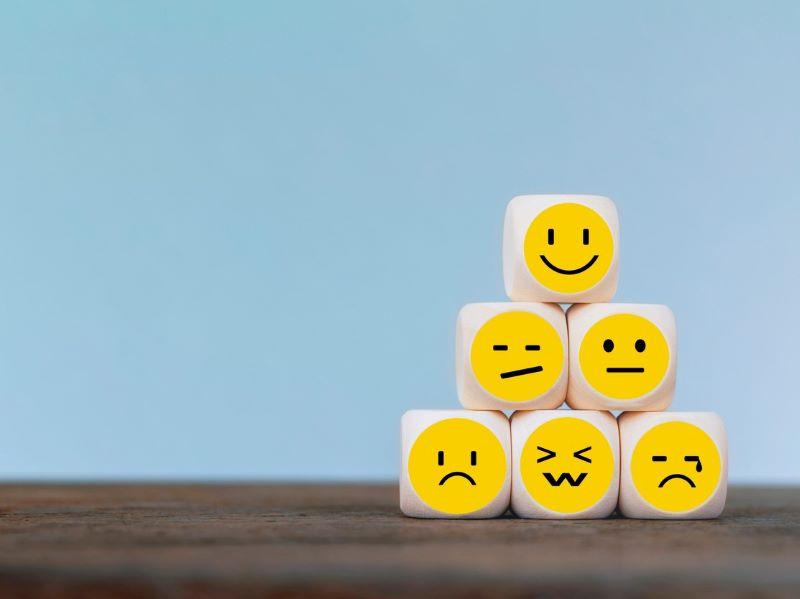Socio-emotional learning (SEL) helps students recognise and regulate emotions, appreciate other perspectives, develop positive relationships and make responsible and caring decisions. Interpersonal adeptness, self-awareness and self-management capabilities are all listed as future-proof employability skills, according to a recent survey. Thus, while technological and higher cognitive skills are needed as digital and AI technologies advance, socio-emotional skills are in demand to prepare today’s learners for tomorrow’s workplace.
The benefits of SEL to students’ developmental trajectories are well researched – for example, better academic performance and retention, improved attitudes about self and others, increased social skills, reduced anti-social behaviour and improved mental health. Nevertheless, the empirical literature and application of SEL is often focused on primary and secondary school students, with increasing attention only now being paid to integrating SEL in higher education.
- A pedagogy of kindness: the cornerstone for student learning and wellness
- Socio-emotional learning online: boosting student resilience and well-being
- Embracing a compassionate approach in higher education
Before the SEL framework is widely integrated in post-secondary education, what can we do to practically help students develop social emotional competencies? Our experiences show that SEL can be embedded in the curriculum through three pedagogical practices.
Work-integrated learning, citizenship and community
By completing an internship in parallel with academic learning, transferable skills naturally develop through working with others and navigating new situations in authentic work settings. Communication, teamwork, self-confidence, decision-making skills, work attitudes and ethics are all fundamental to personal growth and a productive future career.
In a compulsory module on work-integrated learning, our students have interned in community organisations such as rehabilitation centres, elderly care centres, counselling services, community health centres and universities. Experiential learning activities that contribute to the common good of society help students nurture compassion, collaboration and responsible citizenship.
During the pandemic, our students continued internships in online and hybrid modes through Zoom videoconferencing and emailing, facilitating live public webinars, providing support to funded research projects, and helping organisations create and translate materials for social media. These creative yet meaningful remote work opportunities enhanced students’ competencies while increasing the versatility of internship options for a post-Covid world.
Introductory psychology as a valuable module across disciplines
As a scientific study of human behaviour and underlying mental processes, psychology is a diverse and applied discipline that provides frameworks for understanding oneself and making life decisions, nurtures critical thinking, and makes meaningful connections to other disciplines. Providing an introduction to psychology as a core module across a number of disciplines, and as an elective to non-major students, gives them a chance to learn about mentally nourishing topics such as happiness, character strength and virtues, healthy relationships, gratitude, resilience and post-traumatic growth.
Personal development through reflection and mental health workshops
Reflection helps us increase self-knowledge, become more aware of personal biases and assumptions, and take an active role in our learning. Incorporating reflective writing in module syllabuses across disciplines supports this process.
In our work-integrated learning module, students keep a reflective log of their internship experiences and submit a final report of consolidated personal insights, which they present to peers and internship mentors. By sharing progressive self-reflection, students actively engage with their own self-development and peer-to-peer learning and support. In other modules, students integrate conceptual understanding with their personal experiences through reflective essays on specific topics related to course content. Since most students are not familiar with reflective writing as an assessment method, its purpose and relevance must be made clear.
To align with formal teaching, co-curriculum and extracurricular mental health workshops regularly run by experienced professionals raise awareness of mental well-being and self-care, and encourage students to reflect inward, connect to their inner selves, and improve overall emotional regulation. With thoughtful planning and collaboration with industry partners, such learning activities can be flexibly and effectively incorporated in in-person, online or hybrid classes.
What’s next?
Fostering SEL isn’t just about reaching out when students are struggling. Instead of an “add-on”, SEL can be embedded in the curriculum, which may assist time-poor educators who now have even heavier workloads because of the upheaval of the pandemic. Such a seamless approach may be particularly important in cultural contexts where emotional recognition and expression can be dampened in the interests of maintaining group harmony and face-saving.
Kathleen Chim is associate head of division of health and science, and Benjamin Tak Yuen Chan is dean, both at the Li Ka Shing School of Professional and Continuing Education of Hong Kong Metropolitan University.




comment